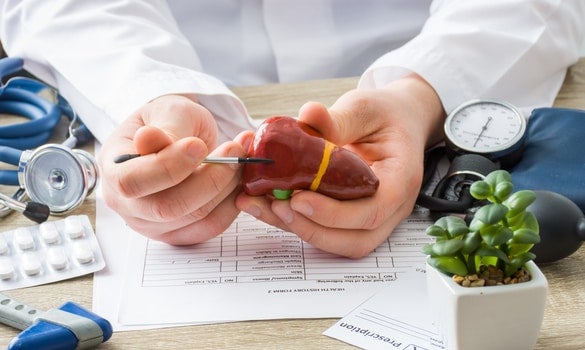
With the increasing rate of living donor transplantation to meet the growing demand for liver transplantation, minimally invasive procurement of the liver graft – with its benefits of faster recovery, less pain and far superior cosmesis – has changed the public perspective of donation.
INTRODUCTION
Surgery in liver transplantation has undergone an evolution since it was first introduced more than 20 years ago. This evolution was the result of its success and the increasing complexity of diseases that needed to be treated.
As a result, it was not only the diseased liver that needed to be replaced. The post-transplant recovery could be complicated by the physiological sequelae that the aetiological diseases caused in the patient, such as portal hypertension, portal venous thrombosis and bleeding tendencies, to name a few.
Living Donor Liver Transplantation
In tandem with this and to address the increasing number of referrals that have resulted in demand outstripping the supply of diseased donor organs, living donor liver transplantation emerged as an important therapy for many patients.
ADDRESSING COMPLEX UNDERLYING PHYSIOLOGIES
The idea of transplanting a partial liver (either right or left lobe) from a living donor multiplied the complexity of liver transplantation when done in the presence of complex physiology. In addition, donor safety and morbidity had to be addressed as well.
Where a whole organ would have been implanted, now a partial graft would be required to take on the metabolic functions of a whole graft and address the complexities of the underlying physiology.
Here, innovation in the form of portal inflow modulation, precise calculation of graft weight suitability by using sophisticated radiological imaging, hepatic venous reconstruction with cryopreserved grafts and microscopic arterial reconstruction have worked successfully.
CHANGING THE LANDSCAPE OF LIVER DONATION WITH MINIMALLY INVASIVE HEPATECTOMY
Perhaps the most important advancement in liver
transplantation is the recent innovation of laparoscopic
procurement of the liver graft. This is a surgical tour
de force of the modern surgical era. The advent
of minimally invasive procurement of the liver has
changed the perspective of donation for many people.
LAPAROSCOPIC LIVING DONOR HEPATECTOMY AT THE SINGHEALTH DUKE-NUS TRANSPLANT CENTRE |
|---|
With an established living donor liver transplant programme and expertise in laparoscopic liver resection, we performed our first laparoscopic living donor hepatectomy in March 2019. Since then, all our living donor hepatectomies for adult-to-adult liver transplant have been performed laparoscopically. Starting from the first case, we have built on our experience, and the cases undertaken were of increasing technical complexity. A laparoscopic donor hepatectomy offers the benefits of faster recovery, less pain and far superior cosmesis. Our donors stay three to four days after the surgery. The march of progress in surgery will move on, and changes for the better of patients will be introduced. The high-stakes nature of living liver donation, and performed in a laparoscopic manner, has established our programme amongst the few top centres in the world performing this surgery. We envision that we will be able to offer this surgery to the majority of our liver donors in future. |
Associate Professor Chan Chung Yip is a Senior Consultant surgeon and is the current
Head of the Department of Hepato-pancreato-biliary and Transplant Surgery, Singapore
General Hospital (SGH). He graduated from the Faculty of Medicine at the National
University of Singapore in 1997. He completed his training in General Surgery in 2006 and received further training in liver surgery and transplantation in Kaohsiung, Taiwan as well
as in laparoscopic hepatobiliary and pancreatic surgery in Seoul, Korea.
He is a pioneer in laparoscopic surgery of the liver, pancreas and bile duct in Singapore, and is a leader in its adoption amongst other surgeons in the country and region. He is a Ministry of Health-gazetted liver transplant surgeon, and is a lead surgeon of the living donor liver transplant programme in SGH.
To find out more about our transplant programmes, GPs can contact the
SingHealth Duke-NUS Transplant Centre:
Tel: 6312 2720
Email: sd.transplant.centre@singhealth.com.sg













 Get it on Google Play
Get it on Google Play